EAB - Emerald Ash Borer
Proudly serving New Jersey and Bucks County, PA
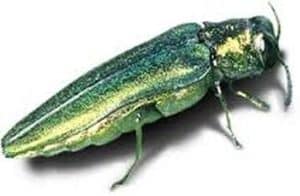
The USDA (U.S. Department of Agriculture) states that EAB and other invasive pests will have an impact on the environment similar to, if not greater than global warming
EAB is commonly spread through the transportation of firewood from an ash tree. Since EAB larvae feed below the bark, infected wood is difficult to recognize.
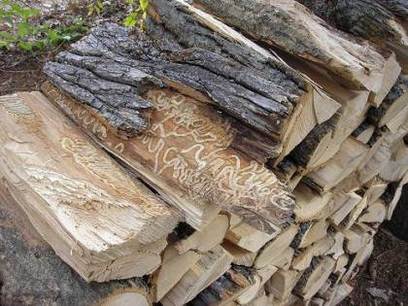
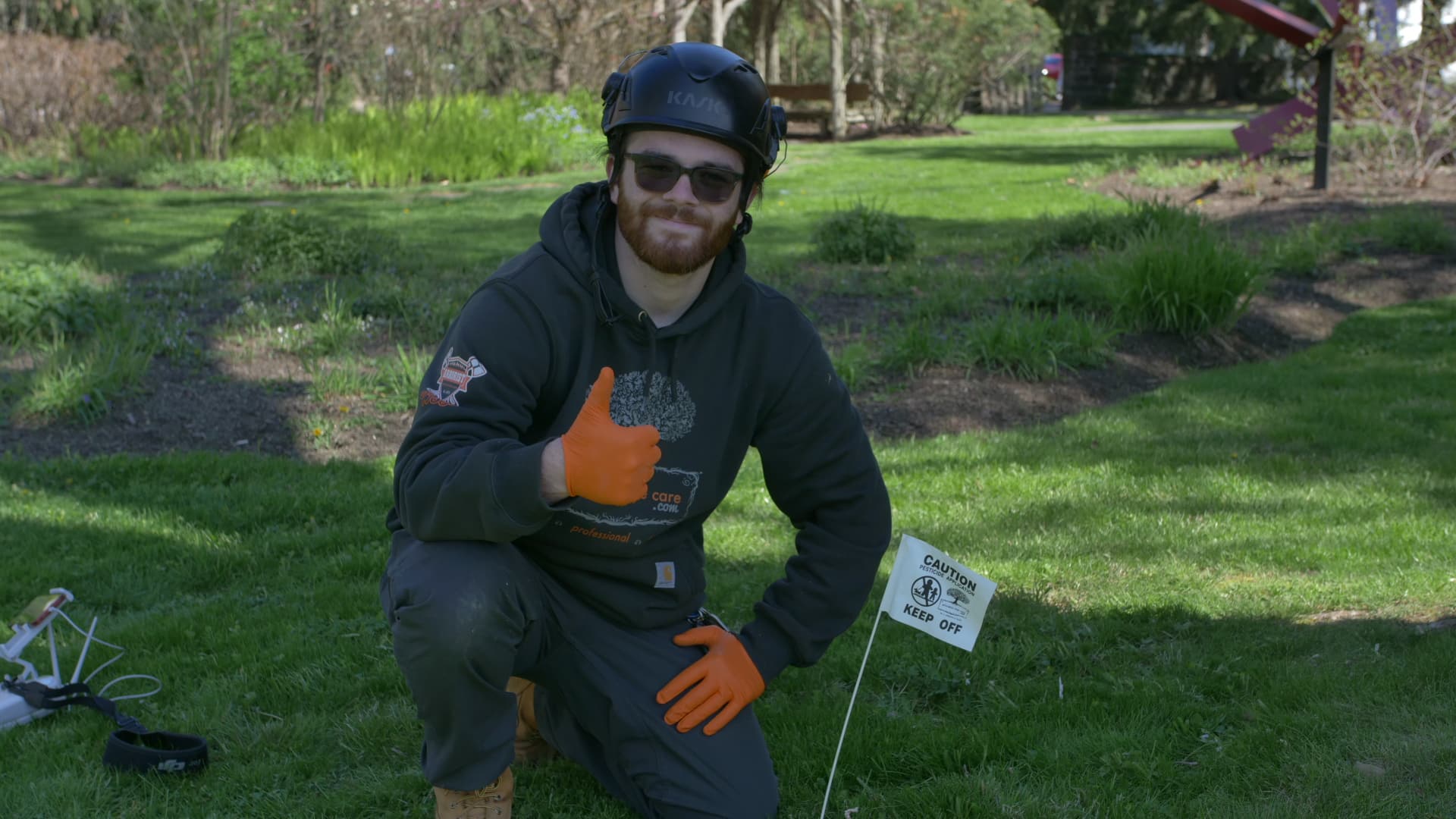
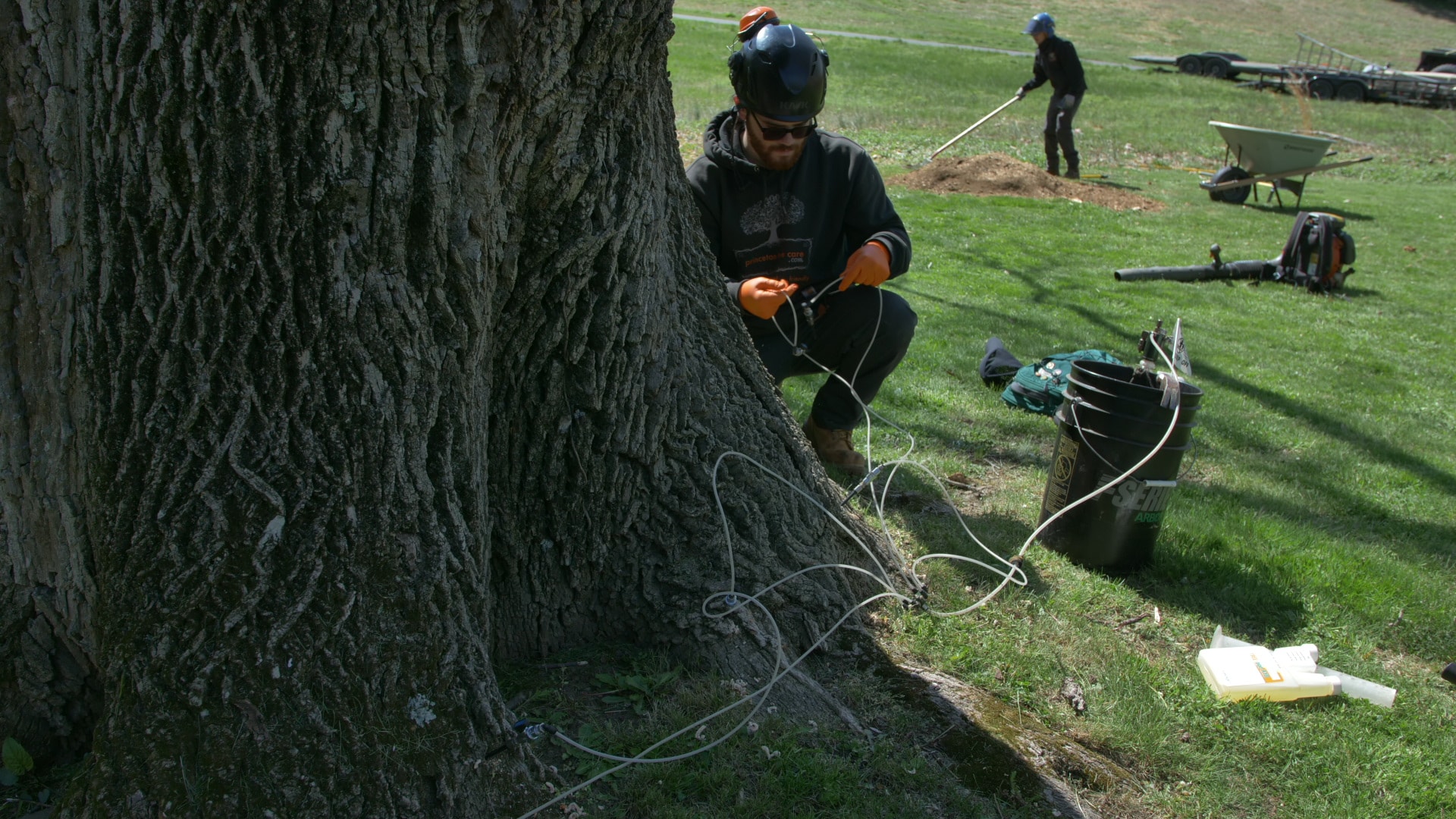
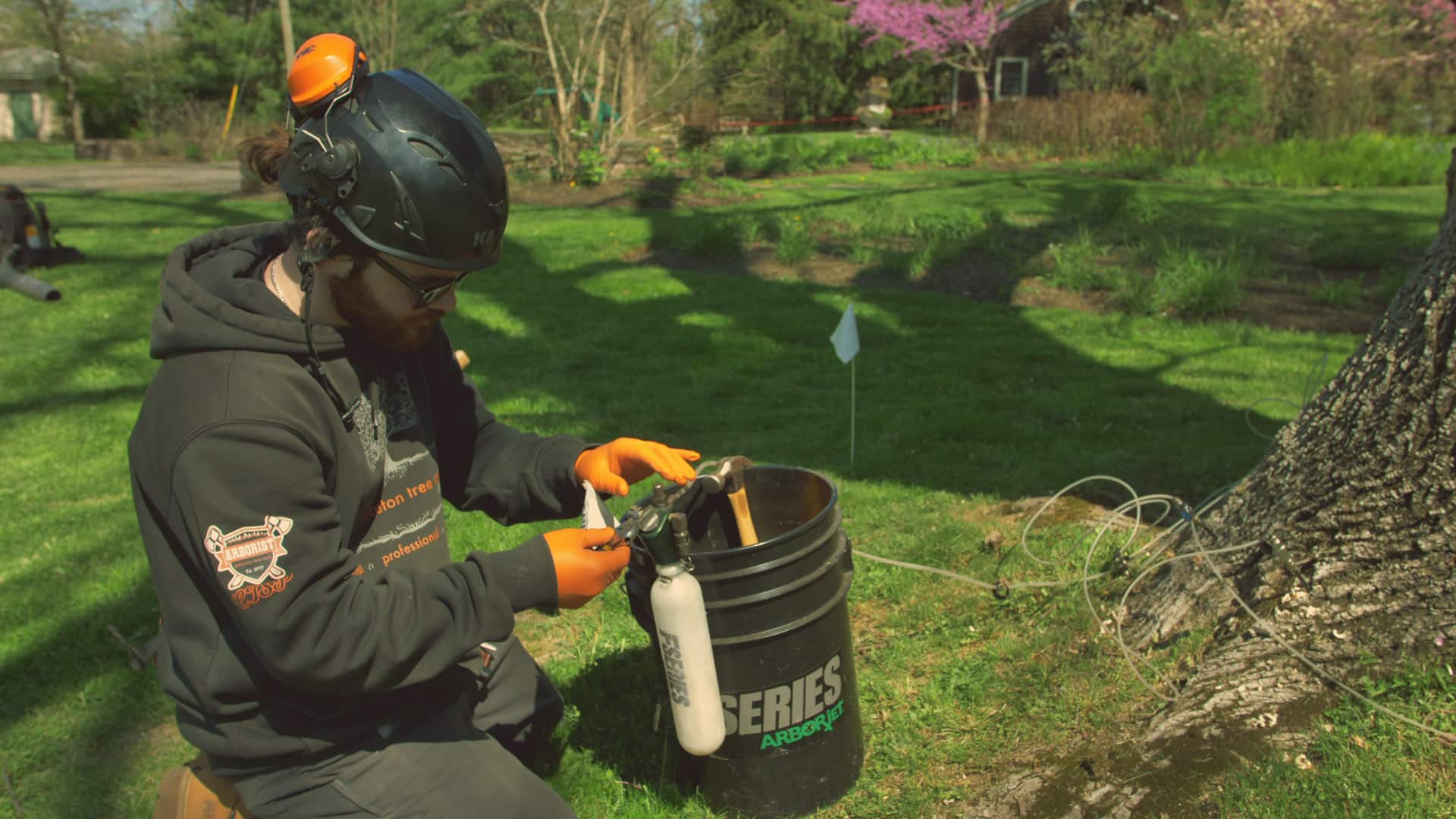
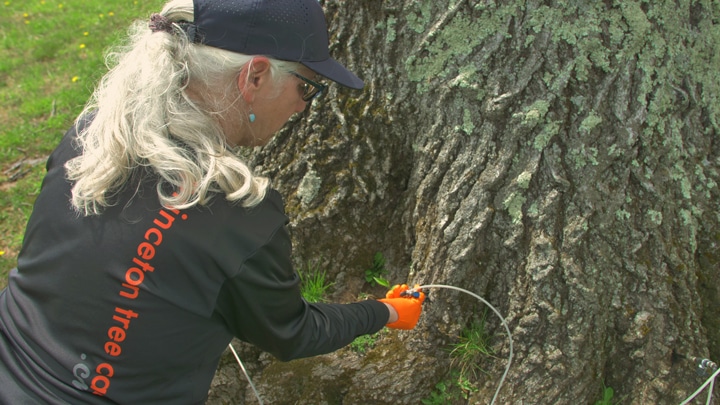
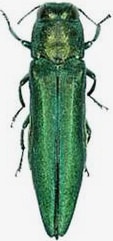
We have improved efficiency by performing tree removals with cranes and yard-friendly equipment to remove the tree debris. Our team is focused on protecting your property throughout the duration of your project. We use ground protection mats to help reduce our impact on your property.
The ISA (International Society of Arborists) New Jersey Chapter anticipates that all untreated ash trees will be destroyed by EAB as soon as 2025.
If you have ash trees on your property, you are at a high risk of EAB. CLICK HERE for a complete map of EAB infestations in North America.
Mature Ash Tree: Has deep ridges and the grooves of the bark create diamond patterns.
Young Ash Tree: Has smooth bark.
Ash leaves have between 5-11 leaflets. Leaflets may have smooth or rigid edges. Ash leaflets are opposite one from another with one leaflet at the end of the leaf. This is a less common leaf configuration for a tree. An ash tree is one of the last trees to leaf out in the spring and one of the first trees to shed its leaves in autumn.
Branches of an ash tree appear opposite one from the other. This is a less common branch configuration for a tree.
A mature ash tree will typically reach heights of 45-80′ tall, although the tallest reported ash tree is 106′ tall and over four feet in diameter. There are many species of ash trees. Certain ash species can live to be 300+ years old.
Ash is used in the production of instruments, such as guitars and drums.
EAB quickly kills ash trees. As the larvae eats through the cambium, which is the layer of the tree that transports nutrients, the tree’s ability to send up nutrients is halted, leading to the death of the tree.
Once EAB enters an ash, the tree will die within two to three years. An infested ash tree will show signs of a thinning canopy before total canopy loss. Once EAB is introduced into an area, it spreads rapidly to near by ash trees.
EAB’s devastating effect on ash trees changes our urban forests for the worse.
Ash trees make for wonderful shade trees and line many of our neighborhood streets. The loss of our ash trees would be devastating.
Taledo, OH: The photo on the left was taken in June 2006 and the photo on the right was taken in August of 2009.

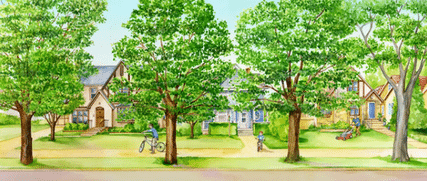
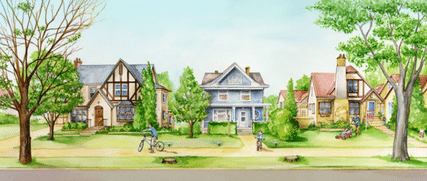
A beautiful ash-lined street. Within 3 years EAB changed the quality of life for those who live on this street. The loss of mature trees caused property value to decline.
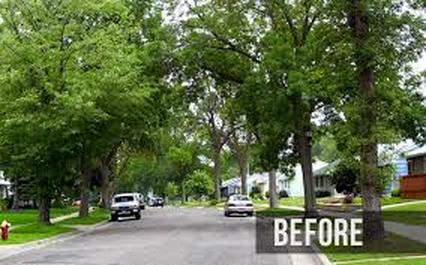
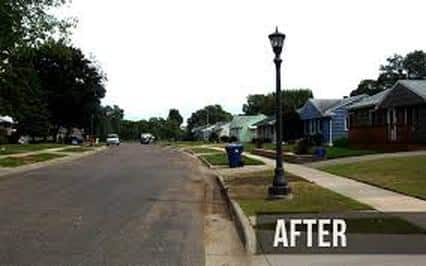
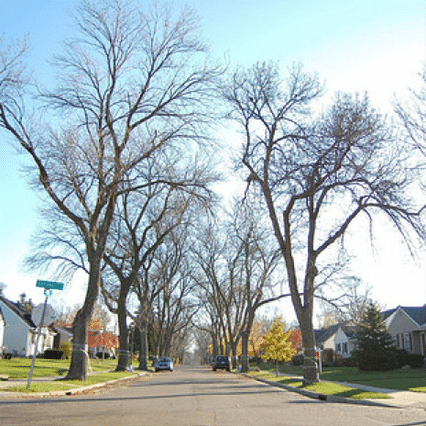
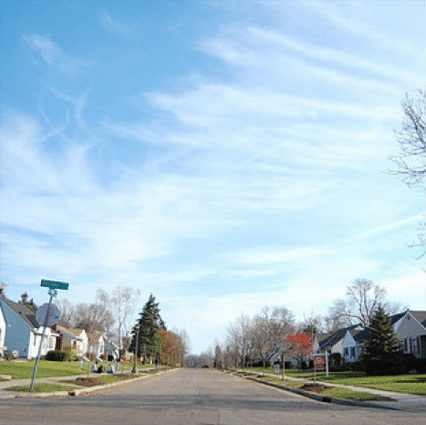
To protect an ash tree from EAB, trunk injections must be performed by a certified and licensed professional.
Contact Princeton Tree Care today for an EAB Consultation.
